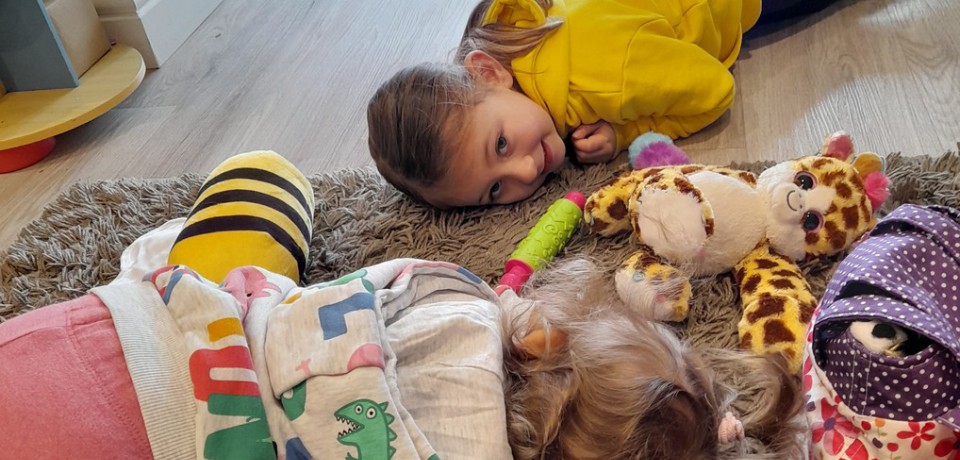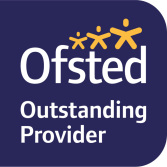
14 questions from the parent/carer’s point of view:
1. How does the setting / school / college know if children/young people need extra help and what should I do if I think my child/young person may have special educational needs?
I talk to the parent/carer before the child joins my setting to see if I can accommodate their needs. I monitor each child’s progress through observations, summative and formative assessments and by following guidance in “development matters “ and “The Early Years Foundation Stage” to make sure that children are progressing as per their age and stage of development. If I notice any inconsistencies I will speak to the parent/carer first to get a more rounded view and then make suggestions about how we could use other sources to help their child.
2. How will early years setting / school / college staff support my child/young person?
I oversee and plan the education programme and will work with each child every session they are with me. I constantly monitor my effectiveness by speaking to parents/carers and by monitoring the children’s progress.
3. How will the curriculum be matched to my child’s/young person’s needs?
Each child’s individual needs are catered for by adapting tasks and expectations so that every child feels valued and that they have accomplished something.
4. How will both you and I know how my child/young person is doing and how will you help me to support my child’s/young person’s learning?
I operate an open door policy where parents/carers are encouraged to discuss the daily activities with me when they drop their children off and again when they pick them up. I send whatsapp's during the day giving a roundup of what we have done with pictures including learning outcomes. I will give suggestions for things that parents/carers can do at home, sometimes sending language, personal social and emotional or reading packs home. I also work alongside other professionals and take recommendations from them into account when doing my planning. I keep parents/carers up to date on any information available online or on valuable training courses offered.
5. What support will there be for my child’s/young person’s overall well being?
I offer an open and honest setting where children are encouraged to learn about and respect each other (please see my Behaviour Policy). Medication is as required (please see my Medication Policy). Personal and intimate care is undertaken with dignity (please see my Toileting, Nappy Changing and Intimate Care Policy). Every child’s views are taken into account and I ask children to complete an appraisal form about my setting each year. This can be done here or at home in whichever way the child decides. This could be completing a form, taking photographs of what they like, drawing pictures of what they would like or talking to me or their parents/carers.
6. What specialist services and expertise are available at or accessed by the setting / school / college?
I work closely with my Surrey County Council's Early Years and SEND teams and take advice from them about contacting outside agencies for advice. I speak Afrikaans a little French, German and Spanish. I am also trained in Makaton baby signing.
7. What training are the staff supporting children and young people with SEND had or are having?
I have training in Makaton, administering asthma inhalers, use of Epi-pens, 12 hour paediatric first aid qualification and gastric feeding. I am happy to undertake training in other areas where required.
8. How will my child/young person be included in activities outside the classroom including school trips?
I do risk assessments of any places we visit to make sure that every child is able to access activities whilst there. Parents give me written permission to take their children on outings. I discuss planned outings with parents before taking the children asking for advice and opionions making sure each child is catered for and parents/carers have peace of mind. I also review outings to make sure everyone felt happy and if not how I could adapt to make it more fun for everyone.
9. How accessible is the setting / school / college environment?
My setting is based in my home. There is a flat driveway leading to a step up to my front door. There is no wheelchair access to my home. Once inside the play area is all on one level. We use lots of sensory resources including music, lights and textures. I do not have disabled changing and toilet facilities. I communicate firstly in English and wherever possible will translate to a family’s home language.
10. How will the setting /school / college prepare and support my child/young person to join the setting /school / college, transfer to a new setting / school / college or the next stage of education and life?
I gather as much information from the parent/carer during social visits at my house and during visits to their home before any child begins to attend my setting. I will meet with and speak to any other professional who has had dealings with the child and enjoy receiving written summaries of children’s progress that I can work from. I usually offer three free of charge settling in sessions where parents/carers come with their children to my home and gradually leave their child with me for longer periods of time. More settling in sessions may be required. The child may want to bring personal items and comforters which they can use or leave in their bag on their own personal hook in my hallway. I do observations, summative and formative assessments together with planning sheets on each child which I share with parents/carers and where signed permission is received, pass these onto new settings like nursery and school.
11. How are the setting’s / school’s / college’s resources allocated and matched to children’s/young people’s special educational needs?
Resources are freely available for all children no matter what their age or stage of development. I purchase resources according to the children who are attending my setting.
12. How is the decision made about what type and how much support my child/young person will receive?
I provide whatever support each child needs. If I feel that I am unable to provide the required support for a specific child to thrive I will talk to the parent/carer about this to come up with other ways to support their child, e.g. specialist professional or training.
13. How are parents involved in the setting / school / college?
I really want parents/carers to be involved in my setting. We have a family fun day here every summer with a bbq and bouncy castle. This gives families a chance to get to know one another and the other children who attend my setting. I often send home learning packs for children to share with their parents. I also send daily progress whatsapps with photographs. I share pictures (with signed permission) and legislative information on my website. I encourage parents/carers to spend a little time here when they collect their children so that they can see what has been going on and what facilities are available. I encourage parents/carers to send in photographs, food items (taking allergies into account), clothes and anything else that enhances our topic. I value parents/carers input and ask for an appraisal form to be completed each year.
14. Who can I contact for further information?
If you need any other information or wish to discuss anything please contact me in the first instance in person, by phone or by email.
Surrey’s Local Offer can be found at Surrey Local Offer


